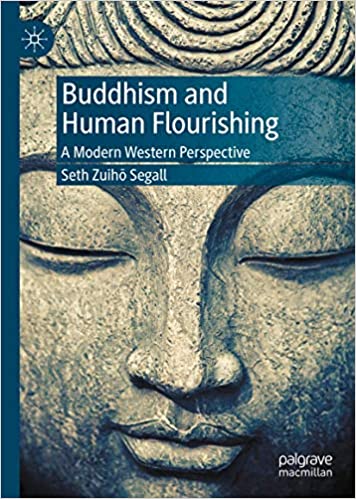
Over the last few decades, scholars have brought us new insights into how we, as Westerners, might best understand and interpret eastern religious traditions. Seth Zu Zuihō’s new book, Buddhism and Human Flourishing: A Modern Western Perspective, is a welcome addition to this growing collection. Following in the footsteps of other scholars, Zuihō’s asks the important and fundamental question: How might we best interpret an oriental religion—Buddhism—from an occidental perspective? After all, our perspectives as Westerners are not only distinctly intrinsic to our mode of interpreting ourselves and our world, they are sometimes radically different from oriental conceptualizations.
Zuihō offers valuable insights from his diverse experience as a Soto Zen priest, clinical psychologist, science writer, and chaplain. His vast knowledge of philosophy, psychology, and therapy, coupled with a deep devotion to Zen Buddhism and seasoned experience as an educator, have brought us a book that is both illuminating and engaging on many levels. He clearly demonstrates that we, as Westerners, do not need to abandon our Western notions of “human flourishing,” in the “Aristotelian” sense, in order to comprehend Eastern notions of enlightenment, and that, in fact, to do so is potentially harmful, “…putting us at risk for an inner dividedness in which we half-believe in any number of contrasting and incompatible ideas.”
While a thoroughly enjoyable and educational read, Zuihō’s central views about Buddhism revolve largely around the meme of enlightenment, which he approaches not so much from the perspective of mysticism, but from effort “wrestling with the idea and trying to make sense of it.” He offers a clearly developed approach to understanding enlightenment from what he calls an eudaimonic model, which, to his credit, connects well with the Western psyche. His discussion of the topic is well-rounded, and he offers many views on the experience and meaning of enlightenment, including descriptions of the experience from others. It is, nonetheless, my view that enlightenment cannot be understood rationally, and that trying to do so is “…like studying Mars with Binoculars. We can know there’s something there, but we can’t know much about it in any detail” (Exploring Chan, 2019). Yet, considering that enlightenment—spiritual awakening—is indeed a central theme of Mahayana Buddhism, how are we to understand it when the rational mind and spiritual mind each perceive different kinds of realities? Zuihō tackles the subject with a tenacity, humility, and reverence that will likely engage many Western readers seeking answers to this perplexing question.
